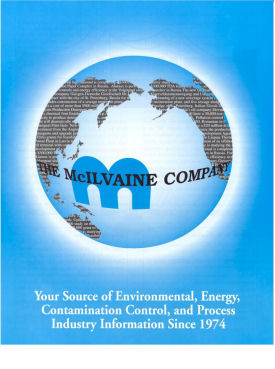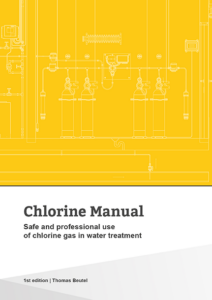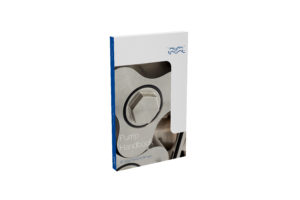Flue Gas Desulfurization Orders To Average $11 Billion/yr For Next 13 Years
After decades of famine the world’s Flue Gas Desulfurization (FGD) system suppliers are now feasting with worldwide orders in 2006 reaching over $11 billion. The suppliers of these systems and the suppliers of components are struggling to deal with the demand. Delays of one year or more due to shortages in equipment or labor are now commonplace.

Chief executives are struggling to determine how much capital should be invested to keep up with demand. The biggest question is will the hot market continue? The answer is yes. The McIlvaine Company continually adjusts forecasts for the FGD market in each country in its online publication, FGD World Markets. On a worldwide basis the FGD system order level will average $11 billion per year over the next 13 years. Most of these systems will be wet limestone. They require large quantities of exotic stainless steel, pumps weighing several tons, valves, nozzles, fans, instrumentation, and entire sub systems to grind limestone, dewater gypsum, and treat wastewater.
McIlvaine order forecasts are made on a purchasing parity basis. If forecasts were made on a nominal basis the markets in Asia would appear smaller by comparison to those in the West. A significant portion of the present and future market is in China where the price of FGD systems is approximately 40 percent of that in the U.S. and Europe. The market for FGD in Europe is higher than it has been in two decades. The driver is global warming mitigation. Older coal-fired plants are being replaced with newer coal-fired plants. Each new plant has FGD systems. McIlvaine predicts that this replacement program will continue over the next decade.
The market in the U.S. will continue at a high level due to a number of factors. New Clean Air Act Amendments are under consideration and are likely to be passed in the next Congress. The requirements to meet ambient particulate air quality will result in state laws requiring additional FGD. The co-benefits of FGD scrubbers in removing mercury, hydrogen chloride and other toxics will further expand the market. In the U.S. and around the world large numbers of new coal-fired plants will be built over the next thirteen years. If carbon emission costs are high, more plants will be built to replace existing ones. If carbon emission costs are low, then more plants will be built in lieu of renewable alternatives.
India, China, and other developing nations will continue to rely on coal as the fuel to run their economic growth engines. While they will not be overly concerned about carbon emissions, they will be sufficiently concerned about SO2 emissions to require scrubbers on most large new installations. China presently has a huge scrubber program affecting 300 units. The FGD market is still in the early stages of re-birth. Thirty years of famine have resulted in a very lean industry. The challenge of hiring and training personnel and building new facilities will continue over the next few years.
McIlvaine predicts that after this bumpy re-birth the industry will have a somewhat easier path. There is however, one big question mark. What will the Chinese licensees do? One has already been acquired by a U.S. investment bank and is looking to expand its horizons beyond China. How many of these licensees will leverage their experience to become international suppliers? The same question must be asked of the pump, valve, piping, nozzle and other component suppliers. FGD World Markets continually updates forecasts of revenues and profitability for the industry. For more information on this service, click on: www.mcilvainecompany.com/brochures/air.html#no27 or contact:
McIlvaine Company
191 Waukegan Road– Suite 208
Northfield, IL 60093
Tel: 847-784-0012
Fax: 847-784-0061
E-mail: editor@mcilvainecompany.com
Source: The McIlvaine Company






